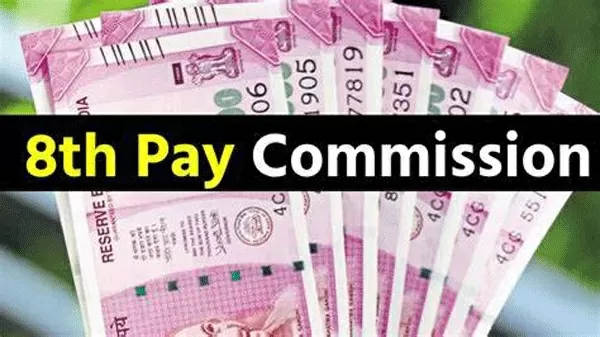
8th Pay Commission: On one hand, the Modi government at the Center has given a gift of 3 percent dearness allowance to the employees and pensioners by implementing the Unified Pension Scheme, after which the DA has increased from 50 to 53 percent. Now the next DA increase will be in 2025. On the other hand, discussion of new pay commission before 2025 has started. Because usually the central government constitutes a new pay commission every 10 years to revise the salaries of government employees.
There are speculations that in the new year 2025, the Modi government may take a big decision regarding the 8th Pay Commission. If the recommendations of the 8th Pay Commission are implemented, then the minimum salary of central employees may increase from ₹ 18,000 to around ₹ 34,560, while the minimum pension of pensioners may be ₹ 17,280. Meanwhile, the Joint Consultative Machinery (JCM) has agreed to hold a meeting with employee organizations in November, it is expected that the 8th Pay Commission will be discussed in this meeting.
A new pay commission is implemented every 10 years.
Actually, till now a new pay commission has been formed every 10 years. The 7th Pay Commission was constituted in February 2014, but its recommendations were implemented from 1 January 2016, which is going to end on 31 December 2025, on this basis the 8th Pay Commission is to be implemented in January 2026, so now The movement has intensified since. If media reports are to be believed, the Central Government can take a decision regarding the 8th Pay Commission in Budget 2025. With the implementation of the new pay commission, the basic salary may increase from Rs 18000 to Rs 34000.
That is why the demand for a new pay commission is rising
It is noteworthy that Pay Commission is a special committee constituted by the Government of India, the main objective of this committee is to review the salaries, allowances and pensions of central employees and pensioners and recommend necessary amendments in them. In the new pay commission, the salaries and pensions of government employees are revised according to various economic parameters, especially inflation. Till now the Central Government has been making a new Pay Commission every 10 years, according to which the next Pay Commission is to be implemented in 2026.
During the budget session in February, various employee organizations including the Employees Federation, National Joint Consultative Machinery Council and Indian Railway Technical Supervisors Association had written a letter to the Central Government demanding implementation of the 8th Pay Commission. The Employees Forum has also submitted a memorandum regarding the Pay Commission to Union Cabinet Secretary TV Somanathan.
Recently, during the monsoon session, Rajya Sabha MPs Ramjilal Suman and Javed Ali Khan had raised questions in this regard. On this, Minister of State for Finance Pankaj Choudhary had said that at present there is no proposal before the Central Government for consideration of the 8th Finance Commission, the government has received only 2 memorandums, hence there is no idea about its formation.
What will be the impact of 8th Pay Commission on Fitment Factor?
- The special thing is that after the implementation of the 8th Pay Commission, the minimum salary of central employees can increase from ₹ 18,000 to about ₹ 34,560, i.e. an increase of about 92 percent, while the minimum pension of pensioners can also increase to ₹ 17,280.
- With this the fitment factor will also increase from 2.57 to 3.68. Due to this, there is a possible increase in the salary of employees by ₹ 20,000 to ₹ 25,000. At present the fitment factor is 2.57 times and the basic salary is Rs 18000. It is believed that the fitment factor may increase from 2.57 percent to 3.00 or 3.68 percent.
- Before this, the Central Government had last increased the fitment factor in 2016 and the 7th Pay Commission was also implemented from the same year. This will benefit about 48.62 lakh employees and 67.85 lakh pensioners.
 look news india
look news india


